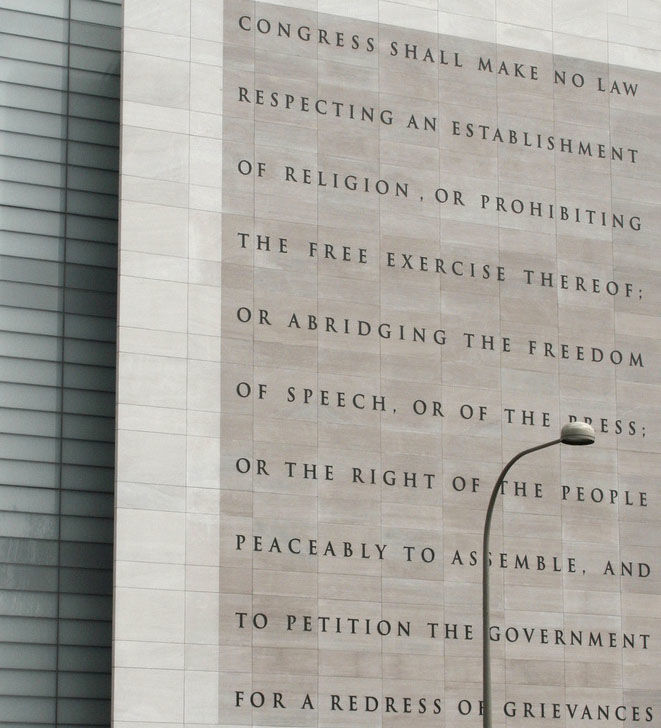Editorial: Is the First Amendment really under siege?
first amendment
April 7, 2019
The state of free speech as it relates to higher education is controversial.
Inherent to our democracy is the First Amendment, which guarantees one’s right to free speech. It also protects an independent press, the ability to practice one’s religion as well as the right to petition and peacefully assemble.
At face value, it shouldn’t feel like such a complex issue. If everyone has the ability to free speech, then the scales should be equal. If someone says something that goes against your beliefs, you have every right to counter their speech with your own.
Yet, as we have seen historically, the scales have never been equal. Outdated racist, sexist, ableist and homophobic laws have been used to marginalize and oppress communities for centuries. This creates a unique intersection, especially on college campuses, that is ripe for disruption.
Iowa State is not immune from free speech issues. If anything, the last four years have shown an environment rife with controversy that has forced both positive and negative change.
What it has also shown, however, is the ability for Iowa State students to historically mobilize behind speech that they might feel is offensive or harmful and negate it with speech of their own.
Take, for instance, the poster-ripping incident of fall 2015. While students were protesting Donald Trump’s visit to a football game, a woman from Des Moines tore one of their posters. It read: “Our lives begin to end the day we become silent about the things that matter.”
As the woman tore the poster, she mentioned voting for white supremacy.
The action following the incident was swift. A town hall was held days later in which more than 550 students, faculty and staff showed up. Many students described feeling unsafe, unwelcome and discriminated against while at Iowa State.
This is free speech in action.
Yet, to spark these discussions, students were harmed by bigotry.
Since 2015, there have been countless instances of free speech on campus — both for good and for bad, largely dependent on whom you might ask.
But, the idea of free speech has layers and for many people of color, women and the LGBTQIA+ community, free speech comes at a cost — the continued invalidation of the identity for the right to spew hate.
Many say that free speech on college campus is under attack. Instead, it is thriving.
Learning how to communicate effectively should be intrinsic to the higher education experience.
Learning how the navigate these nuances should not be seen as a threat to speech but rather as a way to build on one’s knowledge of their environment and the ways they fit into that specific space.
The best way to fight speech is with speech, but recognize the systems of oppression and privilege in use that are quietly in place to imbalance the scales.

















